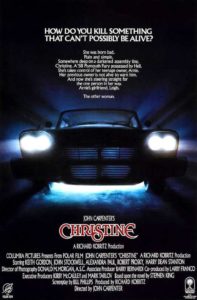Review: Jeff Buckley’s Grace is inimitable

Photo Columbia
The album art for Jeff Buckley’s iconic debut Grace.
May 8, 2020
This review is part of a new RHSToday series where we review albums from before 2000 as if they were just released.
Before there was Adele or Lana Del Rey to show off their melodrama, there was Jeff Buckley. In 1994, Buckley released his first and only studio album Grace, a masterpiece showing off his four-octave vocal range, lyrical prowess and sheer innovation in what it means to make music. Starting with a haunting falsetto and ending with a passionate belt, Grace was the peak of what 90s music could have been.
Buckley’s voice is undoubtedly the most striking thing about the album, lending itself well to intriguing love songs, operatic covers and angry punk anthems. He hits high notes worthy of even the biggest pop stars all while keeping up his suave persona. For any other artist it’d seem like they couldn’t pick a genre and stick with it, but Buckley switches between moods with the fervent energy of a man determined to be the best at everything, even if the only one to beat is himself.
Outside of Grace’s three cover songs—”Lilac Wine,” “Hallelujah” and “Corpus Christi Carol”—Buckley is credited as song writer for each track, whether he’s the sole writer of one or three. His songs are filled to the brim with intricate metaphors to form the exact scene he wants to portray, but Buckley knows exactly when to break the trance and be straight-forward. In “Eternal Life,” a song where Buckley scream-sings his rage over the injustice over the world, he takes a moment to diverge from the fire and death imagery to declare “All I want to do is love everyone.” The song moves onto the chorus without a beat and amidst the pulsing guitar and drums, the real pain that inspired the song breaks through.
“Lover, You Should’ve Come Over,” is my favorite on the album because of its ability to take a concept nearly every artist has touched upon—regret over a relationship—and make it sound brand new. I don’t know whether it’s the organs starting off the song evoking religious imagery or him begging to give up “My kingdom for a kiss upon her shoulder,” but the track is a stand out. The chorus blends into the verses but the assurance that “It’s not too late” changes the misery of the song into something more hopeful.
I could spend hours analyzing exactly why Buckley is a musical genius with just his instrumentals alone, especially considering two out of the ten tracks were written and performed within a single night. His technique is flawless, bending genres and instruments to his will in a way that shows he’s not afraid to break the rules.
Grace‘s outro song is debatable, with the debut ending on either “Dream Brother” or “Forget Her,” the latter being a track added posthumously. Both are just over five minutes long, but that’s the only commonality uniting them, with “Dream Brother” being an ominous warning to be faithful, and “Forget Her” being a biting jab at an ex-lover. “Forget Her” is rumored to have been taken off the album because of Buckley’s assurance that it was too radio friendly, even as his higher-ups screamed that that was the point.
Grace is all Buckley left behind after his tragic drowning in 1997, and it serves as a painting of an artist so determined to do something different he nearly wrecked his career. Over 25 years later, the album is still an inspiration to artists who try desperately to emulate his effortless-seeming sound and end up crashing and burning. To put it simply, Grace is one of a kind, and it’d do you well to listen.










